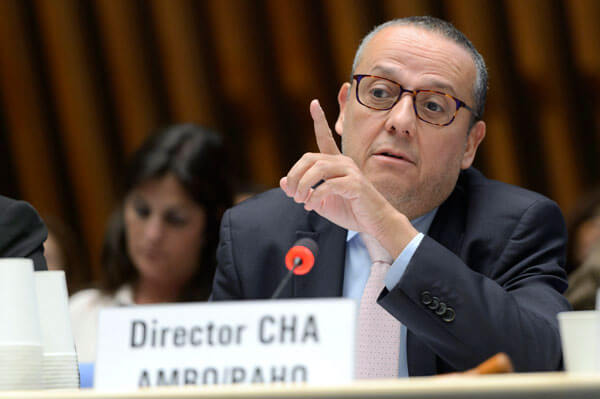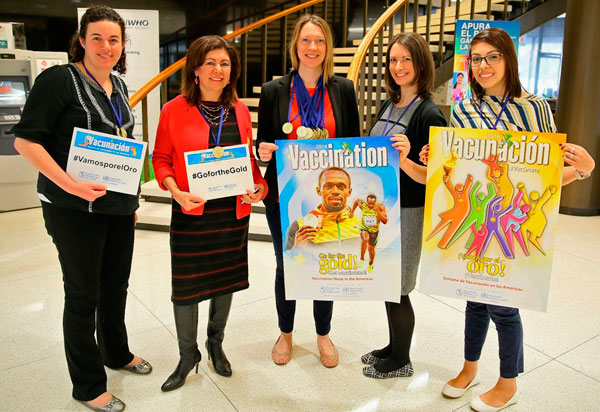The Washington, D.C.-based Pan American Health Organization (PAHO) is calling on the countries of the Americas, including the Caribbean, to work together to end tuberculosis (TB) by 2030.
“TB is not only a medical problem, it is also a social problem, because it is related to poverty, marginalization and poor living conditions, and as such, needs to be addressed by society,” said Marcos Espinal, director of PAHO’s Department of Communicable Diseases and Health Analysis, on World Tuberculosis Day, held every March 24.
‘This year’s slogan is “Unite to End Tuberculosis”, and refers to the need for governments, parliamentarians, health workers, communities, the private sector and civil society to work collectively on prevention and control of the disease, “an effort that goes beyond the capabilities of the health sector,” PAHO said.
It said that the Americas have permanently reduced new cases of tuberculosis (incidence rate) and reduced deaths (mortality rate) by more than half between 1990 and 2014, as a region reaching the Millennium Development Goals (MDGs) target related to tuberculosis.
With the new global goal of the post-2015 and the End TB Strategy, PAHO said the World Health Organization (WHO) seeks to end the disease in the next 20 years.
But PAHO said an estimated 280,000 people still get sick each year, with 23,000 people dying from tuberculosis in the region.
To advance on this path, PAHO said health authorities in the region last year set the goal of reducing the death rate from tuberculosis by at least 24 percent by 2019.
To achieve this goal, PAHO said its Action Plan for the Prevention and Control of Tuberculosis provides for an intensified focus on the patient, increased research on prevention and control of tuberculosis, the mobilization of new funding for initiatives implemented against tuberculosis and aims to ensure that both communities and different sectors are involved in these efforts.
“We must focus efforts on groups that are most at risk of contracting the disease in our region, such as people with HIV, people in urban slums, persons deprived of their liberty, indigenous people, children, the homeless and those with addiction problems,” said Mirtha Del Granado, PAHO regional advisor on tuberculosis.
She added that full funding for national TB programs to ensure access to diagnosis and quality treatment is one of the aspects necessary to end the disease.
PAHO said tuberculosis is caused by bacteria that usually affect the lungs.
It is transmitted from person to person through the air when a patient with pulmonary tuberculosis coughs, sneezes or spits, PAHO said.
Symptoms include coughing, weakness, weight loss, fever and night sweats.
PAHO said TB can be treated and cured with special drugs administered for six consecutive months under the supervision of health care personnel and social support for the patient to facilitate compliance and prevent generated resistance to drugs and the spread of infection.
It is estimated that between 2000 and 2014, 43 million lives were saved worldwide through the diagnosis and treatment of tuberculosis, PAHO said.
In observing World Tuberculosis Day, United Nations Secretary-General Ban Ki-moon also called for united global efforts to end the deadly disease by 2030, saying that the disease would claim the lives of 1.5 million people this year alone.
Ban said “the fight against this deadly disease is only half-won,” adding that TB will affect over 9.6 million men, women and children, and 1.5 million people will lose their lives.
Last year, the UN General Assembly adopted the 2030 Agenda for Sustainable Development, and ending the TB epidemic by 2030 is one of the Agenda’s targets.
The UN said TB disproportionately affects the poorest and most vulnerable, the socially marginalized and those lacking access to basic services / health services.
“Therefore, progress in ending TB must go hand in hand with other Sustainable Development Goal efforts to reduce inequalities, eliminate extreme poverty, ensure social protection, achieve universal health coverage and end HIV / AIDS,” the UN chief said.
He said ending the epidemic requires actions beyond ministries of health alone.
Ban said departments responsible for labor, justice, social welfare, science and technology, internal affairs and migration can all make a difference.
He stressed the need to engage affected persons and communities, as well as non-governmental organizations, researchers and the private sector.
“On this World Tuberculosis Day, I call on leaders across government, civil society and the private sector to unite to end tuberculosis,” Ban urged.


















